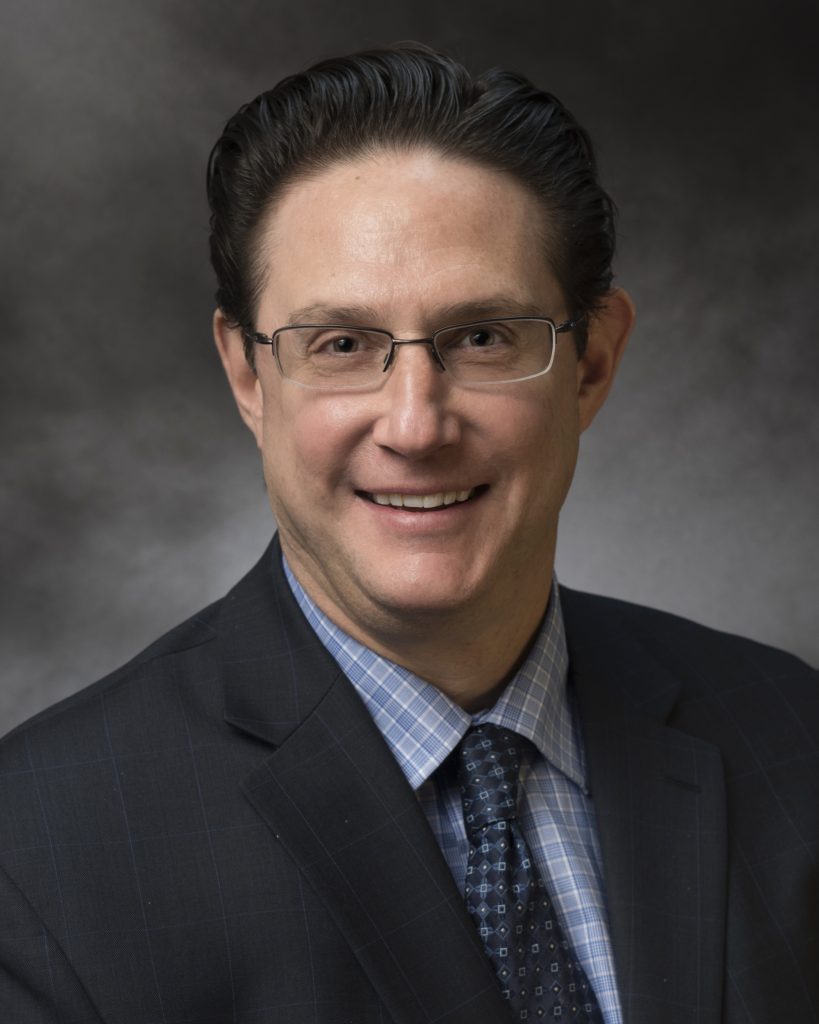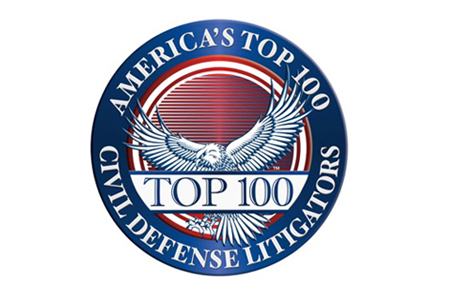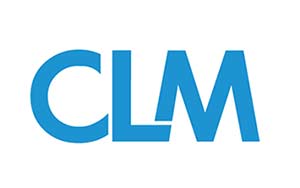Lawrence W. Rosenblatt, Partner
Lawrence manages complex, high-exposure medical malpractice and other civil litigation matters from inception through trial, focusing on obtaining excellent results in a cost-effective manner. He has obtained numerous defense and directed verdicts, as well as dismissals on summary judgment and Frye motions, throughout New York. He is a member of the firm’s Executive and Marketing Committees and is admitted to all New York State courts and the Federal courts of New York, Eastern and Southern Districts.
Lawrence has achieved a peer-reviewed AV-rating by Martindale-Hubbell and for more than a decade has been nominated for inclusion in New York -Metro Super Lawyers, Best Lawyers in America, and Top 100 Civil Defense Litigators.Lawrence is an invited member of the Claims & Litigation Management Alliance (CLM), has previously served as the Chair of its national medical malpractice sub-committee, and has been a panel speaker at CLM national and regional conferences on defense strategies employed in high exposure medical malpractice matters
Practice areas include medical malpractice/professional negligence, general liability, premises, construction, toxic tort, auto and employment law, with an emphasis on high-exposure medical malpractice, catastrophic injury and general liability matters in the greater New York and New Jersey areas.
Representative Verdicts/Summary Judgment Results:
- Westchester County – Defense Verdict for a pediatric gastroenterologist. It was claimed there was a failure to diagnose an anorectal malformation in an infant, resulting in colonic neuropathy and life-long continence issues. At trial, plaintiff requested 25 million dollars in damages. The jury returned a unanimous 6-0 verdict in favor of the physician.
- Dutchess County – Defense Verdict for a regional health network and cardiovascular practice. It was claimed negligent monitoring and positioning during cardiac scanning resulted in injury to the 50-year-old male patient’s shoulder, resulting in numerous operations including a reverse shoulder replacement with permanent disability to his dominant arm. The jury returned a unanimous 6-0 verdict for the defendant.
- Kings County – Directed Verdict for a urologist. It was alleged that there was a failure to prevent, timely recognize, and treat a systemic infection following elective prostate biopsy, resulting in death. After plaintiff rested, Mr. Rosenblatt successfully argued by reference to the trial transcript, that the plaintiff failed to establish proximate cause and that the only departure opined by plaintiff’s expert was a hypothetical one, which was not established through the testimony of the plaintiff. The court agreed with these arguments, resulting in the case being dismissed prior to the defense having to put on a case.
- Queens County – Defense Verdict for an emergency medicine physician and hospital. it was alleged there was a failure to timely diagnose and treat a pulmonary embolism, resulting in death. The jury unanimously found the defendants not liable on all six departure questions that the Court allowed the jury to consider.
- Kings County – Directed Verdict for a hospital. It was alleged that there was a retained foreign object following surgery, alleged to have resulted in the patient’s death. It was argued that plaintiff did not make out a prima facie case, resulting in a directed verdict.
- Kings County – Defense Verdict for a gastroenterologist and his practice. It was claimed there was a failure to properly monitor and appreciate worsening vital signs, leading to the arrest and death of a patient in his 50s, during an elective colonoscopy.
- Kings County – Defense Verdict for a vascular surgeon. It was alleged there was a failure to diagnose impaired blood flow to the plaintiff’s leg following orthopedic surgery, resulting in permanent neurologic injury and a foot drop. The jury returned a unanimous 6-0 defense verdict in under 15 minutes.
- Richmond County – Defense Verdict for an infectious disease physician. It was alleged, the physician did not timely diagnose and properly treat a knee infection post-orthopedic surgery, leading to permanent injury to the plaintiff’s leg. The jury returned a unanimous 6-0 verdict for the defendant.
- Dutchess County – Directed Verdict for a hospital. It was claimed that the hospital was vicariously liable under an ostensible agency theory for the actions of the co-defendant surgeon. It was successfully argued at the close of evidence that the plaintiff did not elicit sufficient evidence to allow the claim of ostensible agency to be considered by the jury.
- Kings County- Summary Judgment for a hospital and its employee in a high exposure obstetrical/wrongful death case. It was alleged that the defendants failed to properly treat a chronically hypertensive obstetrical patient during pregnancy, resulting in arrest, brain damage and subsequent death. Following discovery, defendants moved for summary judgment. Plaintiff opposed the motion by putting forth a sole theory of liability not previously pled. In granting summary judgment, the court adopted the defense argument in reply that it was improper for plaintiff to allege a new theory of liability during the pendency of summary judgment motion proceedings.
- New York County – Summary Judgment for a plastic surgeon. Summary judgment was initially denied in a 41-page decision. On appeal, the entire decision was reversed and summary judgment granted on all four remaining causes of action, including fraud.
- Putnam County – Summary Judgment for a hospital. It was alleged nursing malpractice played a part in a newborn being born with an Erb’s Palsy. After moving for summary judgment, plaintiff choose not to oppose the motion, resulting in a grant of summary judgment.
- Kings County – Summary Judgment for a hospital in a bed sore case. During oral argument, plaintiff was forced to concede deficiencies in their expert’s affirmation, to wit that the expert’s opinions did not properly provide causal connection to either conscious pain and suffering, or death.
- Queens County – Summary Judgment leading to dismissal for two neurosurgeons involving claims surrounding the performance of emergent neurosurgical treatment. Mr. Rosenblatt retained a leading expert in the field to proffer an affidavit in support of the motion, compelling plaintiff’s counsel to discontinue the case against the two neurosurgeons.
- Kings County – Summary Judgment for an internist, where it was alleged that there was a failure to timely diagnose and treat prostate cancer, leading to metastasis and shortened life expectancy. Aside from arguing that the internist comported within good and accepted care, it was also demonstrated that there was no proof of metastatic disease, given plaintiff’s refusal to undergo biopsy; that the plaintiff’s life expectancy was not statistically shortened given the number of years since treatment was concluded with no recurrence; and, that the plaintiff’s expert’s arguments were conclusory. These arguments were adopted by the court in its decision dismissing the case as to all defendants.
- Bronx County – Summary Judgment in a dental malpractice case, arguing that plaintiff’s expert affidavit was conclusory and did not adequately refute the opinions offered by the defendant’s expert.
News
- 17 Aaronson Rappaport attorneys named 2024 New York-Metro Super Lawyers and Rising Stars! Learn more →
- 11 ARFD Lawyers recognized as 2025 Best Lawyers in America! Learn more →
- Lawrence Rosenblatt and team obtain defense verdict in Westchester County involving claims of life-long injuries to a three-month-old infant and 25-million dollar demand. Learn more →
- ARFD obtains First Department reversal of 41-page summary judgment denial, dismissing remainder of case on eve of trial! Learn more →
- 20 Aaronson Rappaport Attorneys named 2023 New York Metro Super Lawyers and Rising Stars! Learn more →
- 12 Aaronson Rappaport Attorneys recognized as 2024 Best Lawyers! Learn more →
- 11 ARFD attorneys recognized in ‘Best Lawyers in America’ (2023 Edition)! Learn more →
- Aaronson Rappaport Attorneys recognized as 2022 NY Metro Super Lawyers and Rising Stars! Learn more →
- Lawrence Rosenblatt successfully argues for summary judgment in bed sore case in Brooklyn Learn more →
- 11 Aaronson Rappaport Attorneys Recognized as The Best Lawyers in America for 2022! Learn more →
- 24 ARFD Attorneys Recognized as 2021 NY-Metro Super Lawyers and Rising Stars! Learn more →
- 15 Aaronson Rappaport Partners & Associates recognized as The Best Lawyers in America (2021 Edition) Learn more →
- 22 ARFD attorneys recognized as 2020 NY-Metro Super Lawyers and Rising Stars Learn more →
- Lawrence W. Rosenblatt and trial team obtain defense verdict in Dutchess County Learn more →
- 10 ARFD Partners recognized by Best Lawyers in America 2020, including Jay A. Rappaport, named Lawyer of the Year Learn more →
- Directed verdict in Kings County for Lawrence Rosenblatt and his trial team Learn more →
- 18 ARFD Attorneys named as 2019 NY-Metro Super Lawyers and Rising Stars Learn more →
- Lawrence W. Rosenblatt obtains a medical malpractice defense verdict in Queens County Learn more →
- 10 ARFD partners recognized by The Best Lawyers in America© 2019 Learn more →
- 11 ARFD partners recognized by NY-Metro Super Lawyers for 2018 Learn more →
- Two more successful summary judgment motion outcomes for ARFD clients Learn more →
- Lawrence Rosenblatt obtains a directed verdict in Dutchess County after two-week trial Learn more →
- Aaronson Rappaport Partners Were Selected to the 2017 New York Super Lawyers List Learn more →
- Aaronson Rappaport Partners Were Selected to the 2016 New York Super Lawyers List Learn more →
- Aaronson Rappaport Partner Lawrence Rosenblatt Presented at CLM Conference Learn more →
- Three Defense Verdicts Obtained in One Month for Aaronson Rappaport Clients Learn more →
Articles
- New York’s Highest State Court Tells NYC To Improve Roadway Safety Learn more →
- Forces of Labor Defense in Erb’s Palsy cases…to be continued? Learn more →
- No fiduciary breach without respondeat superior Learn more →
- Beginning of the End for Medicaid Liens? Learn more →
- Wrongful Death Suit Tossed for Staten Island Man Killed by Pit Bulls Learn more →
- FDA considering expanding role of pharmacists and reducing role of physicians…really? Learn more →
- Clients stressed by lawsuits? Communicate! Learn more →
- Against Medical Advice – Remember CPLR Article 14. Learn more →







